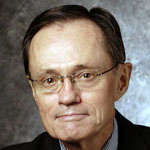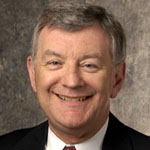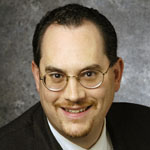What do your spiritual paths say about the role of play?
Three SMU professors are part of a Dallas Morning News discussion in its Texas Faith blog about the role of play in faith.
This week's question: We live in society where so much attention is devoted to work. But we're headed into August, the vacation month. What do your spiritual paths say about the role of play?

Leisure, as we experience it today, is a relatively new thing in human experience. Most human beings have worked when they had to (which was most of the time), played when they could (which was when the overseer wasn't watching), and rested only when there was no more work to do.
In societies that lived by fishing, herding, and agriculture, that rest isn't likely to come on schedule, and it isn't likely to come in August. It's pretty safe to say that neither Jesus nor the Apostles ever had a two-week paid vacation.
Nevertheless, there's something to be learned about our leisure from the way that Jesus commits himself fully to the moment he is living and the people he is with. Paul and the Puritans warn us to be watchful and wary, but Jesus has fun at weddings and weeps at funerals.
By contrast, our organized leisure and scheduled vacations often become no more than an extension of our organized lives. We're never quite there in the moment, because we're always looking ahead to the next destination or over our shoulders to what's going on back at the office.
Renewal happens when we let go of the limits and the expectations and allow ourselves to experience the moment and those who share it with us. Jesus was somehow always able to hear what his Father was saying to him, right here and now. But if he had had a Blackberry, he would have known when to turn it off.

It is clear that the Wesleyan theological tradition affirms the principle of "sabbath" and the commandment to "rest" from labors. But to link that or equate that with the concept of "play" is at best an adoption of middle class and upper class privileges into a theological principle.
John Wesley, the founder of the Methodist movement, was an extraordinarily disciplined person who did not respect anything which appeared to be wasteful of time. He did, however, believe in exercise -- not as a leisure or playful activity, but as something which had a purpose, namely to promote good health.
Methodism has, in its tradition, a strong streak of "purposive" endeavors -- study, prayer, and physical exercise were among the things in which one engaged because they pursued a purpose, namely to attain the goal of a blessed life. The thought of play as activity whereby one could be amused in leisure time was something in which only certain privileged social classes could indulge.
To the degree that American Methodism affirmed the sabbath, it was a departure from work, principally to rest and to worship and to experience the freedom that comes with enjoying one's family or friends. But structured recreation as "play" did not emerge as a Methodist practice until adherents to the faith enjoyed enough social and economic comfort to pursue it.

In my Christian, and more specifically Catholic, tradition, rest, relaxation, and amusement have a definite and important place.
This is clear from Scripture, where Ecclesiastes famously points out that there is a time "for every affair under the heavens," including "a time to laugh" and "a time to dance," and where the Psalms are replete with images of feasting, merry-making, and celebration.
It is reflected in the life of Jesus himself, who we are told attended wedding feasts, enjoyed fellowship with his friends, and took long periods away from the "work" of active ministry to focus on prayer, meditation, and spiritual growth.
It is finally manifested in the teaching and practice of the Church. Pope John XXIII identified "rest" as a fundamental human right, along with food, clothing, shelter, medical care, education, and employment, and recent Popes have spent much of their summers at the retreat of Castel Gandolfo, away from the stresses and cares of Vatican business.
So long as recreation does not become mere idleness or worse, degenerate into a wild abandon that forgets respect for the self, for others, and for God (think stereotypical college spring break in Cancun), it is celebrated in Catholic thought and practice.
# # #